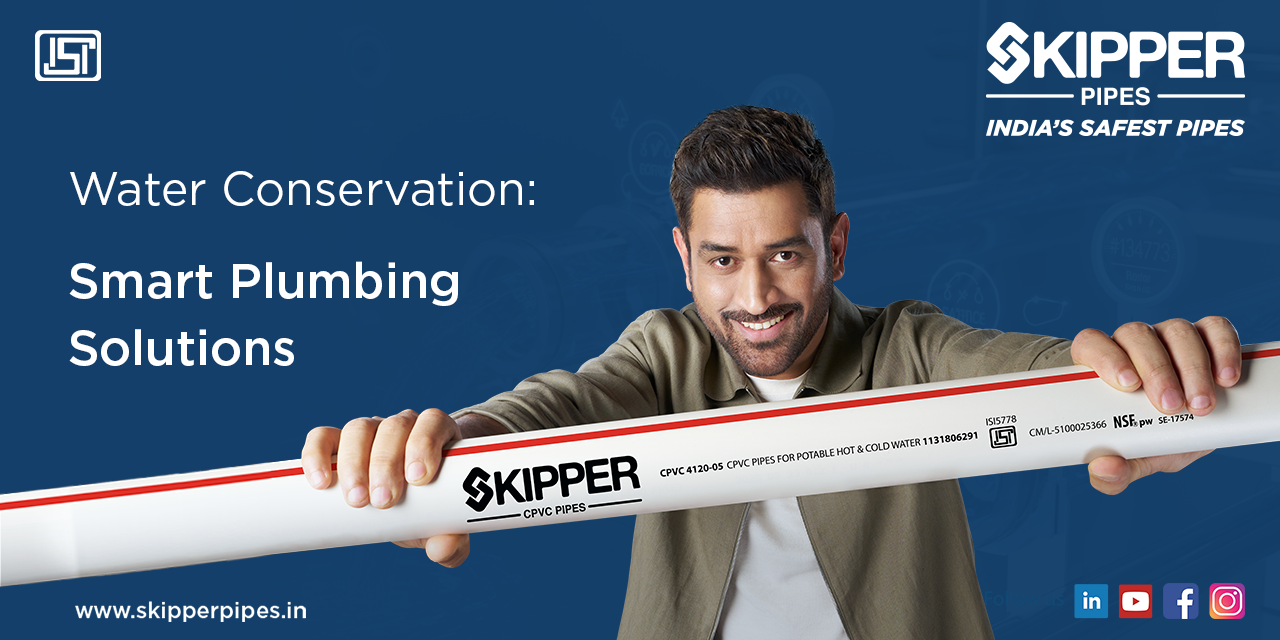Water Conservation: Smart Plumbing Solutions
In the present construction industry, sustainability is considered to be crucial. Engineers, architects and builders are largely focusing on eco-friendly and sustainable materials in order to reduce environmental footprints. A crucial aspect of such endeavour is the selection of the correct piping materials which largely influences water conservation, energy efficiency and making an overall positive environmental impact. As a prominent leader in the polymer pipes and fittings industry, Skipper Pipes is wholesomely dedicated to offering sustainable piping solutions which aim to reduce ecological impact along with ensuring exceptional durability and performance. There are different environmental implications of various piping materials and it highlights why Skipper Pipes is exceptional in becoming the optimal choice for green building projects.
Environmental Impact of Piping Materials
Factually, piping materials were made up of galvanized iron, copper and lead. However, with time, the production procedure for piping materials is largely energy-intensive causing high amounts of carbon emissions.
- Concrete Pipes: The manufacturing of concrete involves a hefty amount of CO2 emissions which is largely contributing to global warming and excess carbon footprint. The production of concrete consumes around 1.11 MJ/kg of energy and emits around 0.159 kg of CO2 per kg.
- Lead Pipes: Lead causes health risks causing a major decline in modern plumbing applications.
- Steel and Copper Pipes: The process of extraction and smelting of metals like steel and copper has high demands causing major energy production which results in a high amount of CO2 For example, the production of general steel takes around 20.1 MJ/kg of energy and emits around 1.37 kg of CO2 per kg.
All these factors cause environmental challenges to the raw materials which have made a major transformation into fostering sustainable alternative production of piping materials in the construction industry.
Advantages of Polymer Pipes as the most sustainable alternative piping materials
Nowadays, polymer pipes are made up of uPVC (plasticized polyvinyl chloride), CPVC (chlorinated polyvinyl chloride), and HDPE (high-density polyethene). These types of polymer pipes have become the most preferred choices for sustainable and eco-friendly customers due to their significant environmental benefits.
Conduct replied off led whether any shortly
- Corrosive and chemical resistance: Polymer pipes are highly energy resistant to corrosion and chemical reactions which widens their lifespan by substantially reducing the need or frequency for replacement.
- Recycle: PVC materials are 100% recyclable which fosters reusing or transforming into new products and thus reduces wastage.
- Lightweight: Polymer pipes are lightweight in nature which helps in easy transportation and installation into commercial and households. It further leads to lesser consumption of fuels and declining carbon emissions during transit.
- Reduction of energy consumption: The production process for polymer pipes requires less energy consumption as against metal pipes. PVC manufacturing requires around 77.2 MJ/kg of energy which is must less than any other metals.
Skipper Pipes is wholly committed towards sustainability having a wide product range of CPVC, uPVC and HDPE pipes. This has helped in promoting sustainability and energy-efficiency construction practices without making any kind of compromise on the quality of building materials.
Conclusion
Skipper Pipes at the forefront of the green revolution is committed towards eco-friendly piping solutions which does not neglect or compromise on durability or performance. The entity has adopted a low-energy manufacturing process and sources its materials ethically. Skipper Pipes ensures that all its products meet global sustainable standards. All the pipes are made with leak-proof technology and better longevity in order to prevent water wastage and are certified by ISO as safe drinking water which is truly dedicated to maintaining environmental and human health. The safe transition from corrosive materials to sustainable piping solutions is not considered to be a modern trend but a sheer necessity to reduce carbon emissions and environmental impact on construction activities. The selection of Skipper Pipes in the construction sector shall positively contribute towards a better and greener future in order to improve ecological balance.


Leave a comment